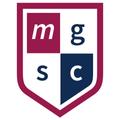Vocational Major (VM)

About the VM
What is the VCE Vocational Major (VM)?
The VCE Vocational Major is the replacement for the Intermediate and Senior VCAL.
The VCE VM is a new vocational and applied learning program that sits within the VCE.
It is a two year program over Year 11 and 12. Students who have satisfactorily completed the requirements of the VCE VM will still receive a VCE Certificate with the words, Vocational Major on it. This is applicable only to students who will be in Year 11 in 2023.
The VCE Vocational Major will prepare students to move successfully into apprenticeships, traineeships, further education and training, university through alternative entry programs or directly into the workforce. The four main studies are assessed at a school level. There are no external examinations for the VCE VM studies and therefore students do not receive a study score, and are not eligible to receive an ATAR.
How is the VCE VM structured?
The VCE Vocational Major has specific subjects designed to prepare students for a vocational pathway. It consists of four new subjects that have been added to the VCE that will make up the core of your program. The four new VM subjects are:
New VM Subject: | What this will look like at MGSC: |
VCE VM Literacy | Units 1 to 4 English |
VCE VM Numeracy | Units 1 to 4 General Maths |
VCE VM Work Related Skills | Units 1 to 4 Work Related Skills * |
VCE VM Personal Development Skills | Units 1 to 4 Personal Development Skills * |
| 180 hours of VET at Cert. II level or above | Units 1 to 4 VET (see VET section) |
| * new subjects to be offered in 2023 |
Only students who enrol in the full program can choose these new VCE VM studies. Each subject has four units and each unit has a set of outcomes which are assessed through a range of learning activities and tasks. Students will apply knowledge and skills in practical settings and also undertake community-based activities and projects that involve working in a team.
What do I have to do to get my VCE VM?
Students must successfully finish at least 16 units, including:
- 3 VCE VM Literacy or VCE English units (including a Unit 3–4 sequence)
- 2 VCE VM Numeracy or VCE Mathematics units
- 3 other Unit 3-4 sequences
- 2 VCE VM Work Related Skills units
- 2 VCE VM Personal Development Skills units
- 2 VET credits at Certificate II level or above (180 hours)
Most students will undertake between 16-20 units over the two years. You can also undertake other VCE subjects, and structured workplace learning.
I’m interested in enrolling in the VCE VM. What do I need to do?
Students need to email their interest in this program by emailing Ms Simone Bouchier (Careers and Pathways Coordinator) on simone.bouchier@education.vic.gov.au by 15 July 2022.
An interview will then be scheduled the following week, with each student and their parent or guardian, in order to ascertain if this program is appropriate to your pathway.
Please note ** The VM will run only if there are sufficient numbers requesting it.
Who decides if I have satisfactorily completed a VCE or VCE VM unit?
The result of Satisfactory or Not Satisfactory is determined at a school level for each unit. This decision is based on the work submitted and must follow the VCAA, and school, rules and procedures.
Can I combine VCE subjects with VCE VM subjects?
Yes. Students may access and gain credit for any VCE subject in addition to the mandatory requirements of the VCE VM.
Can I participate in Structured Workplace Learning (SWL) or a School Based Apprenticeship or Traineeship (SBAT) as a part of the VCE VM?
Yes, SWL or an SBAT can be included in the VCE VM. Students can receive credit for time in the workplace via Structured Workplace Learning Recognition.
VCE VM subject overviews
The new VCE VM subject offerings:
Literacy
Literacy empowers students to read, write, speak and listen in different contexts. Literacy enables students to understand the different ways in which knowledge and opinion are represented and developed in daily life in the 21st Century. The development of literacy in this study design is based upon applied learning principles, making strong connections between students’ lives and their learning. By engaging with a wide range of content drawn from a range of local and global cultures, forms and genres, including First Nations Peoples’ knowledge and voices, students learn how information can be shown through print, visual, oral, digital and multimodal representations.
Along with the literacy practices necessary for reading and interpreting meaning, it is important that students develop their capacity to respond to information. Listening, viewing, reading, speaking and writing are developed so that students can communicate effectively both in writing and orally. A further key part of literacy is that students develop their understanding of how written, visual and oral communication are designed to meet the demands of different audiences, purposes and contexts, including workplace, vocational and community contexts. This understanding helps students develop their own writing and oracy, so that they become confident in their use of language in a variety of settings.
Numeracy
VCE VM Numeracy empowers students to use mathematics to make sense of the world and apply mathematics in a context for a social purpose. Numeracy gives meaning to mathematics, where mathematics is the tool (knowledge and skills) to be applied efficiently and critically. Numeracy involves the use and application of a range of mathematical skills and knowledge which arise in a range of different contexts and situations.
VCE VM Numeracy enables students to develop logical thinking and reasoning strategies in their everyday activities. It develops students’ problem-solving skills, and allows them to make sense of numbers, time, patterns and shapes for everyday activities like cooking, gardening, sport and travel. Through the applied learning principles Numeracy students will understand the mathematical requirements for personal organisation matters involving money, time and travel. They can then apply these skills to their everyday lives to recognise monetary value, understand scheduling and timetabling, direction, planning, monetary risk and reward.
VCE VM Numeracy is based on an applied learning approach to teaching, ensuring students feel empowered to make informed choices about the next stage of their lives through experiential learning and authentic learning experiences.
VCE Vocational Major Numeracy focuses on enabling students to develop and enhance their numeracy skills to make sense of their personal, public and vocational lives. Students develop mathematical skills with consideration of their local, national and global environments and contexts, and an awareness and use of appropriate technologies.
This study allows students to explore the underpinning mathematical knowledge of number and quantity, measurement, shape, dimensions and directions, data and chance, the understanding and use of systems and processes, and mathematical relationships and thinking. This mathematical knowledge is then applied to tasks which are part of the students’ daily routines and practices, but also extends to applications outside the immediate personal environment, such as the workplace and community.
The contexts are the starting point and the focus, and are framed in terms of personal, financial, civic, health, recreational and vocational classifications. These numeracies are developed using a problem-solving cycle with four components: formulating; acting on and using mathematics; evaluating and reflecting; and communicating and reporting.
Personal Development Skills
The VCE VM Personal Development Skills study focuses on helping students develop personal identity and individual pathways to optimal health and wellbeing. It begins with concepts of personal identity and the range of factors that contribute to an individual’s perception of self. Students will investigate health in their community and play an active, participatory role in designing and implementing activities to improve community health and wellbeing.
Students will examine community participation and how people work together effectively to achieve shared goals. They will investigate different types of communities at a local, national, and global level. Students will look at active citizenship and they will investigate the barriers and enablers to problem solving within the community. Students understand different perspectives on issues affecting their community, they will also plan, implement and evaluate an active response to community need.
The study examines interpersonal skills and social awareness in different settings and contexts. Students will examine leadership qualities and the characteristics of effective leaders and how these qualities can be applied to the achievement of goals within personal and community contexts. Students participate in an extended project relating to a community issue. Students will identify environmental, cultural, economic and social issues affecting the community and select one for an extended community project. Students will reflect on how community awareness of their selected issue can be improved.
Work Related Skills
VCE VM Work Related Skills allows students to understand and apply concepts and terminology related to the workplace and further studies to understand the complex and rapidly changing world of work and workplace environments. It helps students understand and develop their skills, knowledge, capabilities and attributes as they relate to further education and employment, to develop effective communication skills to enable self-reflection and self-promotion and to practically apply their skills and knowledge.
This subject requires students to think about and investigate potential employment pathways, to develop a career action plan, to seek appropriate advice and feedback on planned career and further study objectives. Students are required to consider the distinction between essential employability skills, specialist, and technical work skills; to understand transferable skills and identify their personal skill and capabilities and promote them through development of a cover letter and resume and through mock interviews.
Students also learn about healthy, collaborative and productive workplaces, workplace relationships and investigate key areas relating to workplace relations, including pay conditions and dispute resolution. Students look at how teamwork and effective communication contribute to a healthy, collegiate workplace. Students also learn about promoting themselves and their skills by developing an extensive professional portfolio to use for further education and employment applications.
